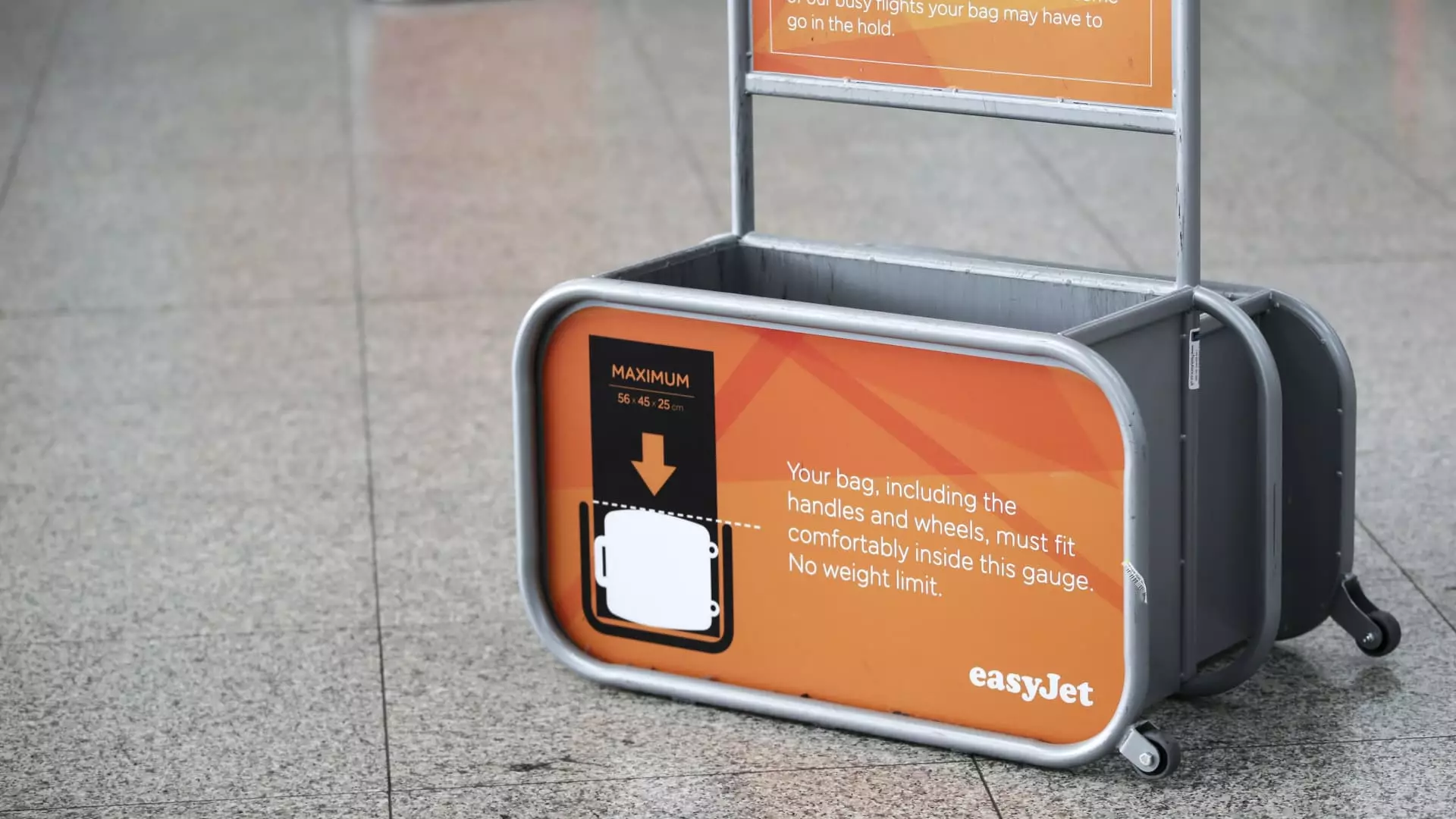EasyJet, the well-known budget airline, recently announced a substantial increase in its ancillary revenue, drawing attention to its evolving business model in an increasingly competitive industry. The reported £3.59 billion in revenue from add-ons such as extra baggage fees, priority boarding, and in-flight services for the fiscal year ending October showcases the airline’s prowess in capitalizing on the growing trend of ‘à la carte’ travel offerings. This growth, however, has surfaced in the context of increasing regulatory scrutiny, particularly from Spanish authorities who have expressed concerns over perceived pricing practices.
In the past few years, airlines have shifted their strategies towards unbundling services from standard ticket prices. This trend, characterized by ancillary revenue generation, has become critical for budget carriers seeking profitability without raising base fare prices. EasyJet’s ancillary revenue rose by an impressive 22% year-over-year, reaching an all-time high of £2.46 billion in its airline segment. This strategic pivot allows airlines to present lower upfront costs, enticing travelers who may shy away from higher ticket prices, while simultaneously tapping into their willingness to pay for additional comforts.
The focus on ancillary services is reflective of broader industry trends where cost-conscious consumers are often willing to absorb extra charges for tailored services. EasyJet CEO Johan Lundgren articulated this perspective, emphasizing that a large segment of their clientele—approximately one-third—opt out of these add-ons altogether. This undermines the narrative that such fees are universally detrimental, as they also provide options for consumers who wish to engage more fully with the airline’s offerings.
Despite the positive financial results, EasyJet now faces a stark challenge from regulatory bodies, particularly following a fine imposed by Spain’s Ministry of Consumer Rights. The ministry has targeted several low-cost carriers, including EasyJet, for practices deemed abusive, such as charging extra for hand luggage and implementing fees for adjacent seat reservations. EasyJet’s financial penalty of 29 million euros places them amid an uncomfortable spotlight of regulatory oversight that could slow their growth trajectory.
Lundgren expressed strong disagreement with the Spanish government’s fines, arguing that such practices are aligned with European law and essential for fostering consumer choice. His contention raises an essential dialogue regarding the balance between regulatory intervention and market freedom. While the intent of consumer protection is commendable, airlines assert that unbundling services can often lead to lower base fares, a principle that revolves around individual consumer preferences.
In the larger context of the airline industry, EasyJet’s financial health reveals a contrasting picture when compared to competitors such as Ryanair. Ryanair, despite experiencing an increase in passenger numbers, reported an 18% decline in half-year profits driven by dropping fares and pressures from consumer spending. This divergence raises questions about the sustainability of various business models within the budget airline sector and suggests that strategies focusing on ancillary revenue may provide a more resilient business framework.
The differing performances highlight the challenges faced by airlines in a post-pandemic climate whereby operational costs, consumer spending habits, and regulatory environments can oscillate wildly. Many airlines are still navigating through the repercussions of the COVID-19 pandemic, with EasyJet and its peers continuously adapting to the shifting dynamics of travel demand.
In closing, EasyJet’s impressive financial results reflect robust demand for travel, particularly in the leisure segment, as evidenced by their record summer performance. However, the looming regulatory challenges could complicate the airline’s operational strategy moving forward. As budget carriers strive to balance profitability with compliance, the ongoing dialogue about pricing transparency and customer choice will likely shape the future landscape of the airline industry. The path ahead for EasyJet will depend on its ability to navigate these challenges while continuing to deliver value to its customers, ultimately determining their role in the competitive European aviation market.

Leave a Reply